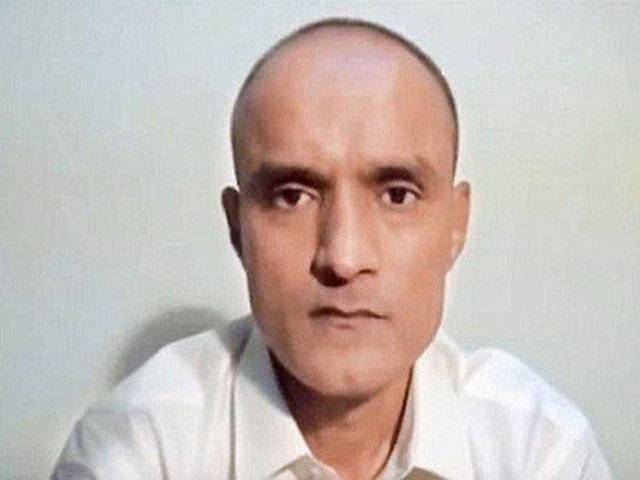ISLAMABAD - Pakistan hopes that the International Court of Justice will ultimately dismiss the convicted Indian spy Kulbushan Jadhav’s case after the ICJ fixed April 17 and July 17 for India and Pakistan to file written pleadings, officials said on Wednesday.
Senior officials at the foreign ministry told The Nation that Pakistan had prepared its case with an aim to push the ICJ to dismiss the Indian case.
An official said: “Pakistan will submit the updated details of the Jadhav case in the ICJ by the deadline [July 17]. The main focus is to prove this case does not fall in the ICJ jurisdiction. We are hopeful to justify our case.”
Another official said: “Indian case is weak. If we fight properly, we can prove our point. Our earlier reply too is detailed and this time we hope to close this case for good. India is just trying to keep us engaged.”
Pakistan claims the ICJ had no jurisdiction to hear Kulbushan Jadhav’s case as it was linked to Pakistan’s security.
Pakistan had also submitted its reply to the ICJ under Article 36 of the United Nations Charter.
Last year, the ICJ asked Pakistan to stay Jadhav’s execution until a final verdict.
“Pakistan shall take all measures at its disposal to ensure that Jadhav is not executed pending the final decision in these proceedings,” the ICJ ruled.
India had approached the top UN court after Jadhav was sentenced to death by a Pakistani military court for his role in terrorism.
The Research and Analysis Wing agent was found guilty of conducting espionage activities in the country.
Ignoring all evidence, India however, maintains he was kidnapped from Iran last year.
The trial against Jadhav was conducted under the Pakistan Army Act 1952 and Official Secret Act of 1923.
In the past, he said, the ICJ had indicated provisional measures to prevent executions in three cases, based on the violation of Article 36 of the Vienna Convention on Consular Relations. These included “(i) the case of Vienna Convention on Consular Relations (Paraguay vs USA) of 9th April 1998; (ii) La Grand case (Germany vs USA) of 3rd March 1999; and (iii) Avena and other Mexican nationals’ case (Mexico vs USA) of 5th Feb 2003,” official record suggested.
Pakistan had entered a Revised Declaration under Article 36(2) of the statute of the ICJ on March 27, 2017.
“This is a common practice. It is stronger declaration than the earlier that was entered in 1960. Many clauses have been added to the declaration including, excluding ‘all matters related to the national security of Islamic Republic of Pakistan’, which in the current case totally excludes the jurisdiction of [the] ICJ under Article 36(2) in our view,” an official said.
Last month, Pakistan arranged a “family reunion” for Kulbushan Jadhav.
The mother and wife, Avanti Jadhav and Chetenkul Jadhav, were not allowed any physical contact due to security concerns.
They sat across, divided by a glass barrier, and spoke initially for 35 minutes, which was later extended to 40 minutes upon Jadhav’s request.
The meeting took place at the foreign ministry and the “guests” were given VVIP protocol, which invited criticism from Pakistanis who see Jadhav as the killer of several innocent people.
The foreign ministry also issued a video clip where Jadhav thanked the Government of Pakistan for arranging the meeting with his family.
Foreign Office spokesperson Dr Mohammed Faisal said Pakistan was in no hurry to execute Jadhav as he still had his mercy appeal pending before the army chief, Gen Qamar Javed Bajwa.
“Even if the army chief rejects his appeal, he can still file another appeal to the President [Mamnoon Hussain],” he said.






